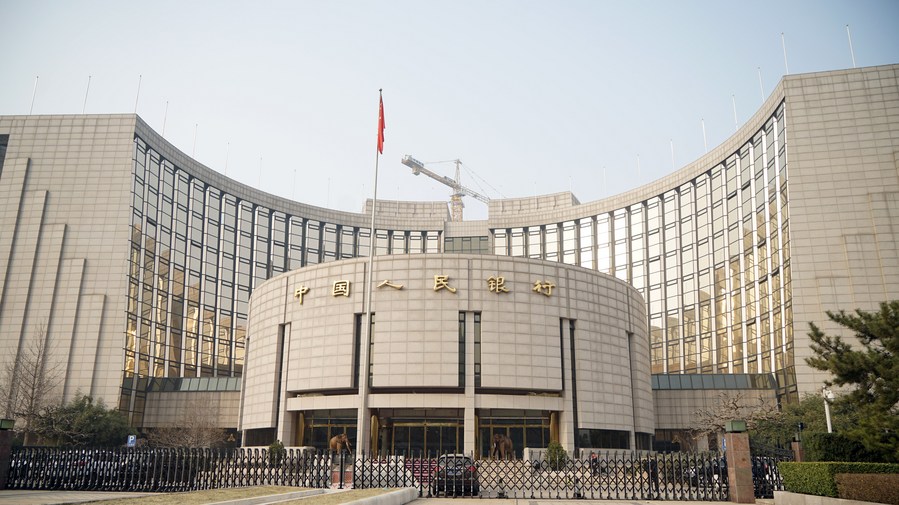
China's central bank said Monday it has decided to cut the reserve requirement ratio (RRR) for financial institutions to support the development of the real economy and reduce the comprehensive financing cost.

The ratio will be cut by 0.5 percentage points, effective on Dec. 15, except for those financial institutions that already implement a 5-percent RRR, said the People's Bank of China (PBOC) in a statement.
After the reduction, the weighted average RRR for Chinese financial institutions will stand at 8.4 percent, the central bank said.
A total of 1.2 trillion yuan (about 188.4 billion U.S. dollars) in long-term funds will be released through the cut.
Taking it as a regular operation of the country's monetary policy, the PBOC said financial institutions will use part of the released funds to repay the maturing medium-term lending facilities while use the rest to replenish long-term funds to better meet the needs of market entities.
The reduction will also lower the fund costs for financial institutions by around 15 billion yuan per year, according to the PBOC calculation.
It can guide financial institutions to actively use the funds released to strengthen support for the real economy, especially smaller enterprises, and lower the comprehensive financing cost, said the PBOC.
The central bank said it will continue to implement a prudent monetary policy, prioritize stability and avoid "flood-like" stimulus.
It will also make efforts to maintain reasonably ample liquidity, strengthen cross-cyclical adjustments and promote the consistency of macro policies for the year 2021 and 2022.